Fudan University
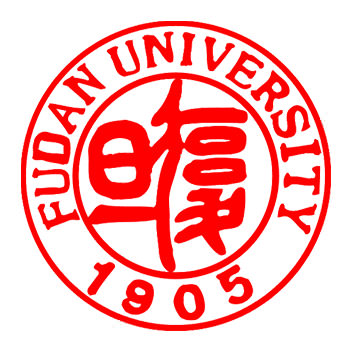
Founded: 1905
Address: 220 Handan Rd - Shanghai, China
Phone: +86 21 65642222
Address: 220 Handan Rd - Shanghai, China
Phone: +86 21 65642222
Here you find out Fudan University complete information about fees, location, degree Fudan University offers, number, website, and much more. Fudan University is a leading university in Shanghai - China.
You can also find out jobs at Fudan University for students, teachers, and professors. We also update the database for an internship at Fudan University for students.
Fudan University was established in 1905 as Fudan Public School. It was the first institution of higher education to be founded by a Chinese person, renowned modern educator Ma Xiangbo. The school’s name was chosen from the “Biography of Yuxia” in the Classic of History (《尚书大传 虞夏传》), where the two characters fù复 (“return”) and dàn旦 (“dawn”) are found in the... famous lines “Brilliant are the sunshine and moonlight, again the morning glory after the night,” signifying continuous self-renewal, and expressing the hope that China could become a country with a strong higher education system run by Chinese intellectuals. In 1917 the name was changed from Fudan Public School to Fudan Private School; in 1937 after the outbreak of the Anti-Japanese War, the school moved to Beipei in Chongqing, and in 1941 it became state-run; in 1946 it moved back to its original location in Jiangwan, Shanghai. After the nationwide restructuring of institutions of higher education in 1952, Fudan University became a comprehensive university of arts and sciences; in 1959 it became one of the first National Key Universities along with Shanghai First Medical College (later known as Shanghai Medical University).
Shanghai Medical University was founded in 1927. It was the first medical school to be founded by a Chinese person. It was originally named Fourth Sun Yat-sen University Medical College.
Fudan University was merged with Shanghai Medical University in 2000, forming a new, stronger Fudan University with a broader set of disciplines: medicine, sciences, and arts. As one of the first participants in the 211 and 985 Projects, Fudan has developed into a comprehensive research university, with Departments of Philosophy, Economics, Law, Education, Literature, History, Science, Engineering, Medicine, and Management.
Fudan is home to 14,100 undergraduates and associate degree candidates, 14,800 graduates including 3000 foreign degree candidates, 2,700 staff and 3,100 full-time teaching faculty members. Fudan hosts 46 members of Chinese Academy of Science and members of Chinese Academy of Engineering, 99 Chair Professors of Chang Jiang Scholars Program, and 30 National Key Basic Research Program of China (also named “973 Program”) PIs. There are 28 schools and independent departments with 70 bachelor degree programs, 35 doctoral degree programs of Level I academic disciplines, 154 doctoral degree programs, 224 master degree programs, and 29 post-doctoral programs. There are 11 Level I national key academic disciplines and 19 Level II national key academic disciplines. Fudan hosts around 300 research institutes including 5 national key labs, 38 ministerial or provincial key labs and engineering centers, 5 “Project 985” Science and Technology Innovation Platforms and 7 “Project 985” Arts and Social Sciences Innovation Bases.
The campus is laid out as a main area consisting of the Handan Street Campus and Jiangwan New Campus areas, along with two side campuses, Fenglin Campus and Zhangjiang Campus, covering a total area of 2.4432 square kilometers. The total area of all school buildings is 1.4923 square kilometers. Eleven hospitals are also affiliated with the school, including Zhongshan Hospital and Huashan Hospital, with a total of 15,000 doctors, nurses, and personnel.
Fudan University celebrated its 100th anniversary in 2005. Chinese president Hu Jintao sent a letter of congratulations, expressing his hopes that the school will continue its tradition of excellence while developing and innovating into the future, building itself into a world-class comprehensive university, fostering development of persons of talent, ability, and integrity, and putting forth a new, even greater contribution towards building a prosperous society and realizing the Chinese people’s great revival.
Over the past hundred years, the school has made outstanding contributions to the country by developing talent, innovating in science and technology, carrying forward civilization, and serving society. Students and teachers of Fudan always keep in mind the school motto “Rich in knowledge and tenacious of purposes, inquiring with earnestness and reflecting with self-practice,” maintain the school spirit of “civilized, healthy, united, rousing,” practice the school traditions of being “hard working, rigorous, result-oriented, and innovative,” and develop the Fudan spirit of “patriotic service, academic independence, a diversity of approaches, and pursuit of excellence.” They make great contributions to the liberation and development of the people, the construction and development of the nation, and the civilization and progress of society.
In 1905, Yu Youren and Shao Lizi left Zhendan Public School to support Ma Xiangbo in founding Fudan Public School in Wusong. The school’s name was chosen from the “Biography of Yuxia” in the Classic of History, where the two characters fù复 (“return”) and dàn旦 (“dawn”) are found in the lines “Auspicious clouds are splendid, they gather and fill the sky; Brilliant are the sunshine and moonlight, again the morning glory after the night.” The original meaning was the pursuit of greatness, and it implies self-run education and the revival of China. Ma Xiangbo and Yanfu each held the post of school president. Li Denghui was president from 1913 until 1936. During his 23-year tenure, Fudan developed into a distinguished private university renowned for developing applied skills in the fields of business, economics, news reporting, education, and civil engineering, with a complete program from middle school through graduate school.
After the outbreak of the Anti-JapaneseWar in 1937, some Fudan teachers and students moved to Beibei in Chongqing. In 1941 an agricultural college was added. On New Year’s Day 1942, the National Government’s Administrative Department ratified changing Fudan from private to state-run, with the full name Fudan State-run University. Wu Nanxuan was school president, followed by Zhang Yi. In the summer of 1946, the Chongqing school moved back to the original location in Shanghai’s Jiangwan, combining with the Shanghai school, and the school again increased in scale.
The Shanghai Military Control Commission took control of Fudan in June of 1949. The commission appointed Zhang Zhirang and Chen Wangdao to the school board as director and deputy director. The Fudan University Committee of the Chinese Communist Party was established in February 1952, with Li Zhengwen as secretary. In August and September of 1952, the East China region carried out a great restructuring of universities, and Fudan University became the nation’s key school in the humanities, social sciences, and natural sciences, which determined the basic pattern of development of academic departments and teaching staff for the next 50 years.
In 1954, Yang Xiguan became the secretary of the Fudan University Conference of the CCP. In 1956 Fudan held the first National Representative Conference of the CCP. In the 1950s and 60s, the Party University Committee led by Yang Xiguang and Wang Ling supported president Zhang Chenwang in promoting the quality of education, making full use of experienced experts and seasoned professors, with a planned, focused, systematic training of a younger generation of mainstay teachers. Fudan’s quality and conditions of education developed considerably, reaching a distinguished plateau in the available fields of study. From 1949 through 1966, over 70 Fudan students were chosen to become academicians at the Chinese Academy of Sciences or the Chinese Academy of Engineering, the third largest number of any college or university in the nation.
During the Great Leap Forward in 1958, Fudan University established new majors in Computational Mathematics, Atomic Physics, Radiochemistry, Radio Electronics, Biophysics, and Biochemistry. In the humanities, the departments of Law and of Philosophy were overhauled. The establishment of these new majors marked Fudan’s path towards a Socialistic comprehensive school with its own characteristics. In 1959, Fudan University was listed as one of the country’s 16 key universities. From 1966 until 1976, Fudan University fell victim to the Cultural Revolution, as heavy casualties were inflicted on teaching and research.
In 1977, Fudan University resumed recruitment of undergraduate students, and resumed recruiting graduate students the following year. In 1978, Su Buqing became school president, and Xia Zhengnong became first secretary of the CCP Conference. They carried out a series of restructurings, while initiating democratic school management and promoting an ideological liberation movement. From 1983 until 2011, Xie Xide, Hua Zhongyi, Yang Fujia, Wang Shenghong, and Yang Yuliang successively held the post of school president, while Sheng Hua, Lin Ke, Qian Dongsheng, Cheng Tianquan, Qin Shaode, and Zhu Zhiwen held the post of party secretary.
In 1984 Fudan University founded its graduate school. In the same year, the State Council approved it as one of the nation’s ten key colleges and universities. In February 1993, Fudan University proposed its plan to “pursue quality, compete to be the best, and define its position on the national team of colleges and universities,” as it progressively established an objective to build a world-class university.
In 1994, a preliminary hearing of the National Ministry of Education’s “Plan 211” division proposed a blueprint for building Fudan University over the next ten years into a center and foundation for high-ranking personnel training, high-quality scientific research, high-tech achievement transfer and high-standards policy-making consultation, becoming a world-class comprehensive university with a dynamic academic ideology, commensurate with Shanghai’s position as an international metropolis. On May 22nd, 1995, chairman Jiang Zemin wrote the following commemoration for Fudan University: “In the new century, let’s build Fudan University into a world-class comprehensive university.”
In 1999 the National Ministry of Education and the Shanghai City Government signed a joint sponsorship agreement for Fudan University, and Fudan became one of the first group of colleges and universities to take part in the “985 Plan”. On April 27th, 2000, Fudan University and Shanghai Medical College were merged, forming a new Fudan University.
2005 was Fudan University’s 100 year anniversary. China’s president Hu Jintao sent a letter of congratulations, saying that he hopes the school will continue its tradition of excellence while developing and innovating into the future, building itself into a world-class comprehensive university, developing talent, ability, and integrity, and putting forth a new, even greater contribution towards building a prosperous society and realizing the Chinese people’s great revival.
You can also find out jobs at Fudan University for students, teachers, and professors. We also update the database for an internship at Fudan University for students.
Fudan University was established in 1905 as Fudan Public School. It was the first institution of higher education to be founded by a Chinese person, renowned modern educator Ma Xiangbo. The school’s name was chosen from the “Biography of Yuxia” in the Classic of History (《尚书大传 虞夏传》), where the two characters fù复 (“return”) and dàn旦 (“dawn”) are found in the... famous lines “Brilliant are the sunshine and moonlight, again the morning glory after the night,” signifying continuous self-renewal, and expressing the hope that China could become a country with a strong higher education system run by Chinese intellectuals. In 1917 the name was changed from Fudan Public School to Fudan Private School; in 1937 after the outbreak of the Anti-Japanese War, the school moved to Beipei in Chongqing, and in 1941 it became state-run; in 1946 it moved back to its original location in Jiangwan, Shanghai. After the nationwide restructuring of institutions of higher education in 1952, Fudan University became a comprehensive university of arts and sciences; in 1959 it became one of the first National Key Universities along with Shanghai First Medical College (later known as Shanghai Medical University).
Shanghai Medical University was founded in 1927. It was the first medical school to be founded by a Chinese person. It was originally named Fourth Sun Yat-sen University Medical College.
Fudan University was merged with Shanghai Medical University in 2000, forming a new, stronger Fudan University with a broader set of disciplines: medicine, sciences, and arts. As one of the first participants in the 211 and 985 Projects, Fudan has developed into a comprehensive research university, with Departments of Philosophy, Economics, Law, Education, Literature, History, Science, Engineering, Medicine, and Management.
Fudan is home to 14,100 undergraduates and associate degree candidates, 14,800 graduates including 3000 foreign degree candidates, 2,700 staff and 3,100 full-time teaching faculty members. Fudan hosts 46 members of Chinese Academy of Science and members of Chinese Academy of Engineering, 99 Chair Professors of Chang Jiang Scholars Program, and 30 National Key Basic Research Program of China (also named “973 Program”) PIs. There are 28 schools and independent departments with 70 bachelor degree programs, 35 doctoral degree programs of Level I academic disciplines, 154 doctoral degree programs, 224 master degree programs, and 29 post-doctoral programs. There are 11 Level I national key academic disciplines and 19 Level II national key academic disciplines. Fudan hosts around 300 research institutes including 5 national key labs, 38 ministerial or provincial key labs and engineering centers, 5 “Project 985” Science and Technology Innovation Platforms and 7 “Project 985” Arts and Social Sciences Innovation Bases.
The campus is laid out as a main area consisting of the Handan Street Campus and Jiangwan New Campus areas, along with two side campuses, Fenglin Campus and Zhangjiang Campus, covering a total area of 2.4432 square kilometers. The total area of all school buildings is 1.4923 square kilometers. Eleven hospitals are also affiliated with the school, including Zhongshan Hospital and Huashan Hospital, with a total of 15,000 doctors, nurses, and personnel.
Fudan University celebrated its 100th anniversary in 2005. Chinese president Hu Jintao sent a letter of congratulations, expressing his hopes that the school will continue its tradition of excellence while developing and innovating into the future, building itself into a world-class comprehensive university, fostering development of persons of talent, ability, and integrity, and putting forth a new, even greater contribution towards building a prosperous society and realizing the Chinese people’s great revival.
Over the past hundred years, the school has made outstanding contributions to the country by developing talent, innovating in science and technology, carrying forward civilization, and serving society. Students and teachers of Fudan always keep in mind the school motto “Rich in knowledge and tenacious of purposes, inquiring with earnestness and reflecting with self-practice,” maintain the school spirit of “civilized, healthy, united, rousing,” practice the school traditions of being “hard working, rigorous, result-oriented, and innovative,” and develop the Fudan spirit of “patriotic service, academic independence, a diversity of approaches, and pursuit of excellence.” They make great contributions to the liberation and development of the people, the construction and development of the nation, and the civilization and progress of society.
In 1905, Yu Youren and Shao Lizi left Zhendan Public School to support Ma Xiangbo in founding Fudan Public School in Wusong. The school’s name was chosen from the “Biography of Yuxia” in the Classic of History, where the two characters fù复 (“return”) and dàn旦 (“dawn”) are found in the lines “Auspicious clouds are splendid, they gather and fill the sky; Brilliant are the sunshine and moonlight, again the morning glory after the night.” The original meaning was the pursuit of greatness, and it implies self-run education and the revival of China. Ma Xiangbo and Yanfu each held the post of school president. Li Denghui was president from 1913 until 1936. During his 23-year tenure, Fudan developed into a distinguished private university renowned for developing applied skills in the fields of business, economics, news reporting, education, and civil engineering, with a complete program from middle school through graduate school.
After the outbreak of the Anti-JapaneseWar in 1937, some Fudan teachers and students moved to Beibei in Chongqing. In 1941 an agricultural college was added. On New Year’s Day 1942, the National Government’s Administrative Department ratified changing Fudan from private to state-run, with the full name Fudan State-run University. Wu Nanxuan was school president, followed by Zhang Yi. In the summer of 1946, the Chongqing school moved back to the original location in Shanghai’s Jiangwan, combining with the Shanghai school, and the school again increased in scale.
The Shanghai Military Control Commission took control of Fudan in June of 1949. The commission appointed Zhang Zhirang and Chen Wangdao to the school board as director and deputy director. The Fudan University Committee of the Chinese Communist Party was established in February 1952, with Li Zhengwen as secretary. In August and September of 1952, the East China region carried out a great restructuring of universities, and Fudan University became the nation’s key school in the humanities, social sciences, and natural sciences, which determined the basic pattern of development of academic departments and teaching staff for the next 50 years.
In 1954, Yang Xiguan became the secretary of the Fudan University Conference of the CCP. In 1956 Fudan held the first National Representative Conference of the CCP. In the 1950s and 60s, the Party University Committee led by Yang Xiguang and Wang Ling supported president Zhang Chenwang in promoting the quality of education, making full use of experienced experts and seasoned professors, with a planned, focused, systematic training of a younger generation of mainstay teachers. Fudan’s quality and conditions of education developed considerably, reaching a distinguished plateau in the available fields of study. From 1949 through 1966, over 70 Fudan students were chosen to become academicians at the Chinese Academy of Sciences or the Chinese Academy of Engineering, the third largest number of any college or university in the nation.
During the Great Leap Forward in 1958, Fudan University established new majors in Computational Mathematics, Atomic Physics, Radiochemistry, Radio Electronics, Biophysics, and Biochemistry. In the humanities, the departments of Law and of Philosophy were overhauled. The establishment of these new majors marked Fudan’s path towards a Socialistic comprehensive school with its own characteristics. In 1959, Fudan University was listed as one of the country’s 16 key universities. From 1966 until 1976, Fudan University fell victim to the Cultural Revolution, as heavy casualties were inflicted on teaching and research.
In 1977, Fudan University resumed recruitment of undergraduate students, and resumed recruiting graduate students the following year. In 1978, Su Buqing became school president, and Xia Zhengnong became first secretary of the CCP Conference. They carried out a series of restructurings, while initiating democratic school management and promoting an ideological liberation movement. From 1983 until 2011, Xie Xide, Hua Zhongyi, Yang Fujia, Wang Shenghong, and Yang Yuliang successively held the post of school president, while Sheng Hua, Lin Ke, Qian Dongsheng, Cheng Tianquan, Qin Shaode, and Zhu Zhiwen held the post of party secretary.
In 1984 Fudan University founded its graduate school. In the same year, the State Council approved it as one of the nation’s ten key colleges and universities. In February 1993, Fudan University proposed its plan to “pursue quality, compete to be the best, and define its position on the national team of colleges and universities,” as it progressively established an objective to build a world-class university.
In 1994, a preliminary hearing of the National Ministry of Education’s “Plan 211” division proposed a blueprint for building Fudan University over the next ten years into a center and foundation for high-ranking personnel training, high-quality scientific research, high-tech achievement transfer and high-standards policy-making consultation, becoming a world-class comprehensive university with a dynamic academic ideology, commensurate with Shanghai’s position as an international metropolis. On May 22nd, 1995, chairman Jiang Zemin wrote the following commemoration for Fudan University: “In the new century, let’s build Fudan University into a world-class comprehensive university.”
In 1999 the National Ministry of Education and the Shanghai City Government signed a joint sponsorship agreement for Fudan University, and Fudan became one of the first group of colleges and universities to take part in the “985 Plan”. On April 27th, 2000, Fudan University and Shanghai Medical College were merged, forming a new Fudan University.
2005 was Fudan University’s 100 year anniversary. China’s president Hu Jintao sent a letter of congratulations, saying that he hopes the school will continue its tradition of excellence while developing and innovating into the future, building itself into a world-class comprehensive university, developing talent, ability, and integrity, and putting forth a new, even greater contribution towards building a prosperous society and realizing the Chinese people’s great revival.
Read More
Details:
LeaderShip: President: Xu Ningsheng
Fees:
Time:
Phone Number: +86 21 65642222
City: Shanghai
Fees:
Time:
Phone Number: +86 21 65642222
City: Shanghai
Timing:
Country: China
Staff: 5323
Website: http://www.fudan.edu.cn
Country: China
Staff: 5323
Website: http://www.fudan.edu.cn
Subjects:
Jobs in Fudan University
Currently, there is no job opening in Fudan University as per our database.

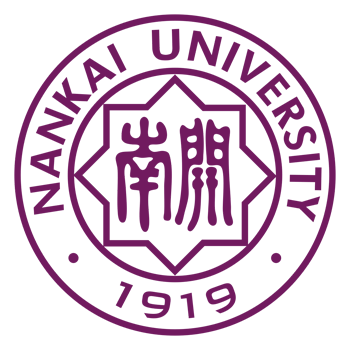
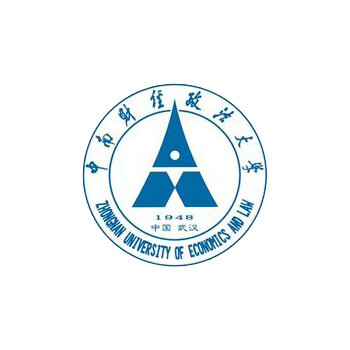
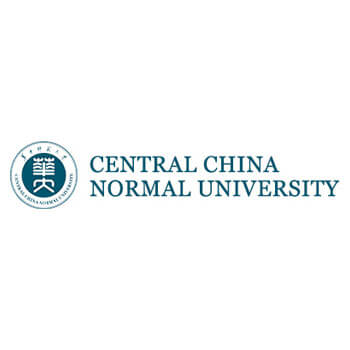
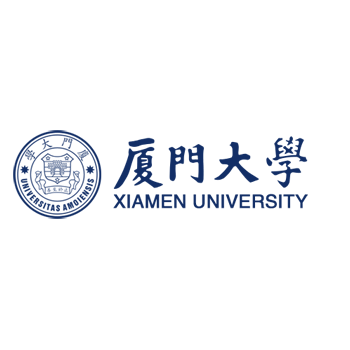
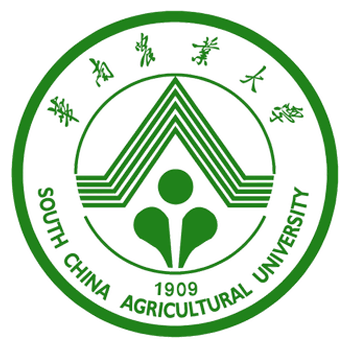
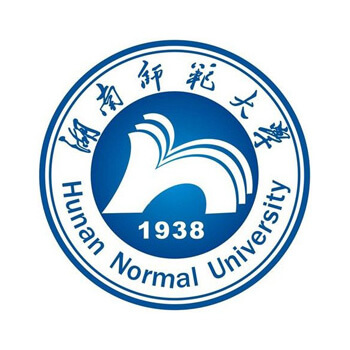
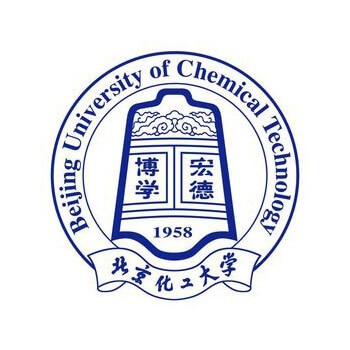
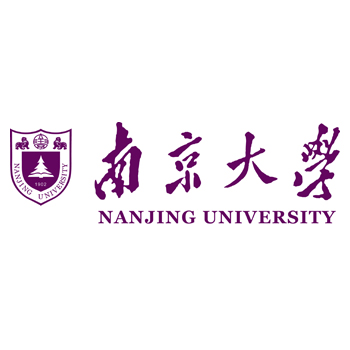










Leave a Reply